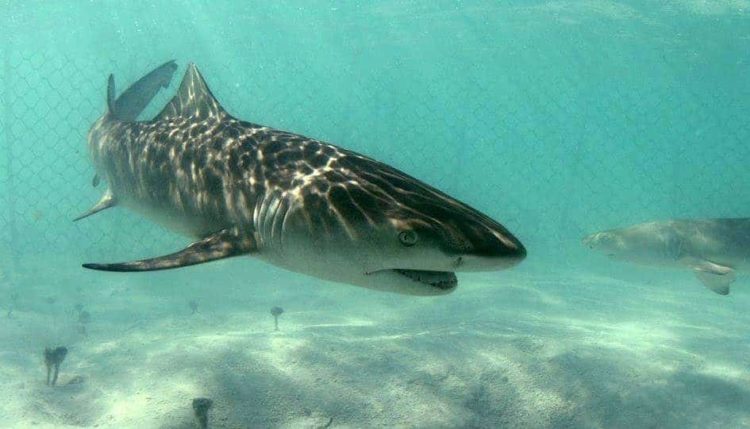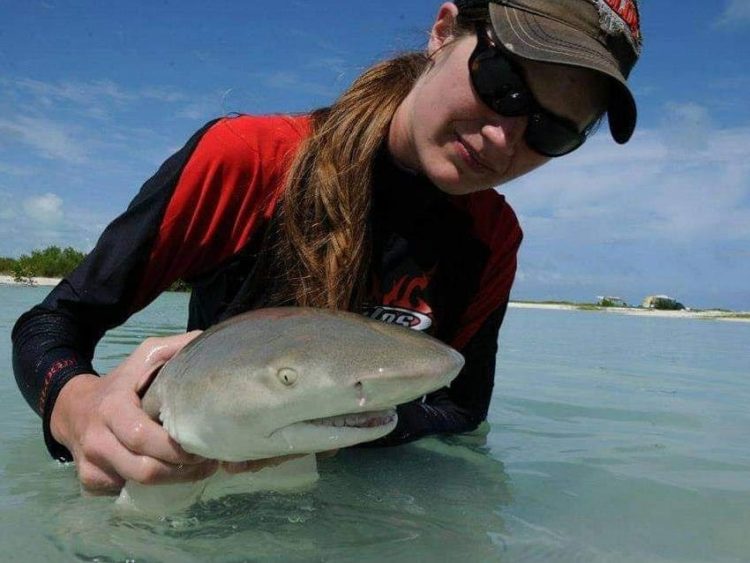Venezuela (Los Roques Archipelago)
The Caribbean Sharks Education Program uses empathy and social media to turn poachers into conservationists.
“I spend about 50% of my time in the water”, chuckles Leonardo Sánchez, the Director of the Venezuelan Shark Research Centre (CIT for the Spanish acronym) and the Caribbean Sharks Education Program. As he says this, his Zoom background makes him look like he’s calling from the depths of the ocean. In the company of a whale shark.
“Not many people care about sharks, and it’s hard to find funds for research and conservation”, he says. They’re misunderstood creatures with a bad reputation — nobody wants to help the ferocious killers that movies portray — and many governments around the world still don’t recognise that they’re endangered, even though whale sharks are included in the IUCN (International Union for Conservation of Nature) red list of threatened species.
That’s the case in Venezuela, where foreigners can buy fins for pennies to then resell them for a fortune in their home country as exotic delicacies or health remedies. Venezuelan poachers can get $20 for 1kg of shark fin, while the local minimum wage is about $3. It’s easy to see how people living in coastal areas may turn to this bloody trade.
Oil is a problem too. Venezuela’s idyllic Los Roques Archipelago protected area, where the CIT mainly operates, lost 17% of its mangroves in the past 10 years due to contamination. This is a tragedy for baby sharks who grow up protected by mangrove roots.
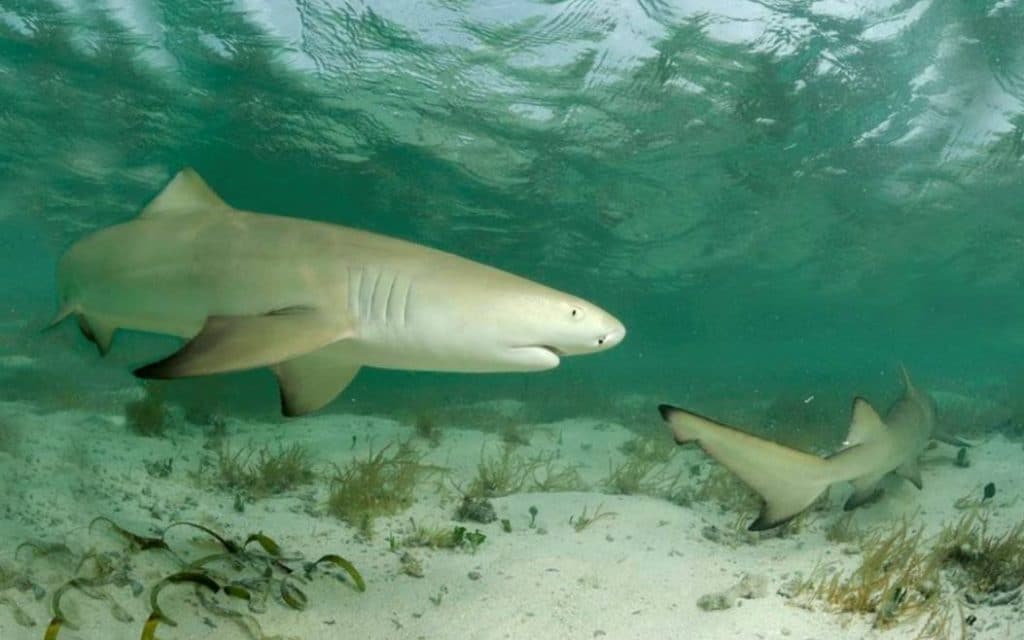
There are more than 500 shark species in the world
The CIT team realised that without addressing the issue holistically and in collaboration with coastal communities, there was no hope to save the sharks. “As scientists and academics, we used to be hungry for publication. But writing papers doesn’t help, only by working with people you can make a difference.”
That’s when the Caribbean Sharks Education Program was born. The project works on several levels to raise awareness among coastal communities on the importance of shark conservation and biodiversity while providing fishermen with alternative sources of income for their expertise.
“Nobody wants to be a poacher and hurt animals, but some have to for economical reasons and they must become desensitised to be able to work”, explains Leonardo. A poacher’s life is also tough, “you have to spend cold and humid nights outside and work in harsh and unsafe conditions, all the while avoiding checks and running from pirates and the authorities.” This makes some poachers feel that they too, like sharks, are misunderstood.
Leonardo’s team used empathy to open difficult communication channels. They visited fishing communities and went door to door to talk about sharks and the ecosystem, explaining how these animals are crucial for marine habitats and human survival.
Like ruthless doctors of the sea, sharks target weak and sick fish, the type that you don’t want on your plate or reproducing in the ocean. They limit the abundance of the species they prey upon, maintaining a healthy structure in marine ecosystems. They also support seagrass meadows by preventing overgrazing, therefore playing an important part in the carbon cycle — more sharks in the ocean means less carbon in the atmosphere. And crucially, they can be worth more alive than dead. One trip accompanying tourists and divers to see the sharks can pay up to $150.
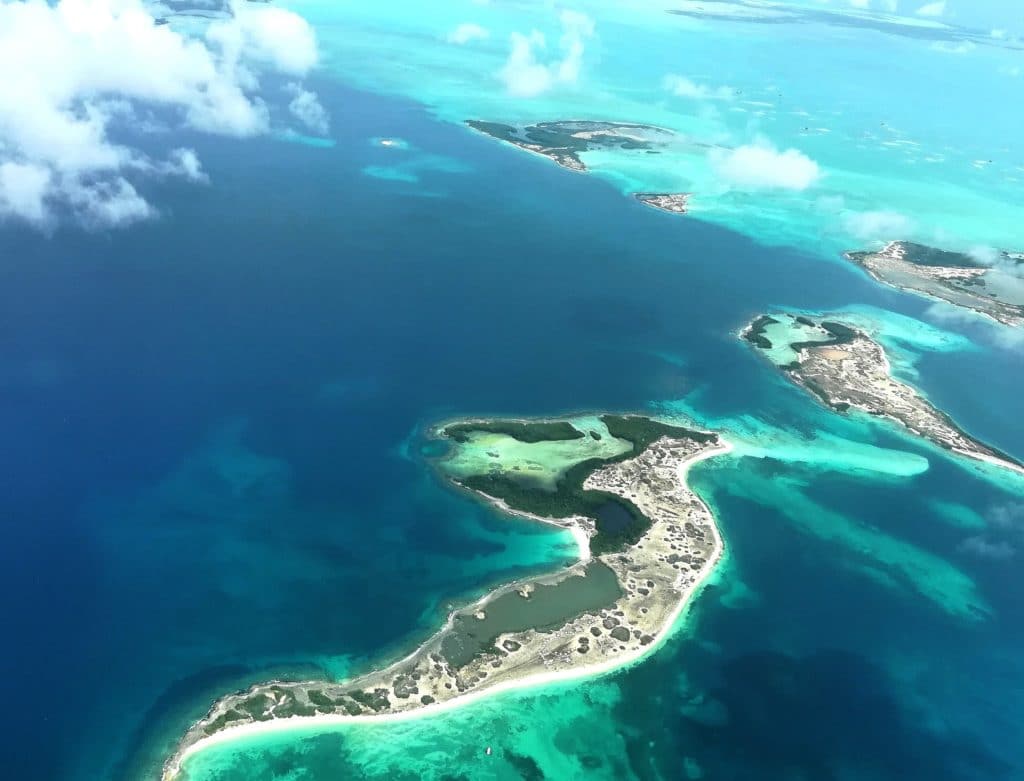
Welcome to baby shark heaven
Ecotourism isn’t the only alternative to poaching. The Caribbean Sharks Education Program also puts fishermen in contact with eateries and high-end food markets in the capital that pay a pretty penny for red lionfish, an invasive species causing considerable damage in the Caribbean. And if a fisherman frees a caught shark, the Program repays them for the ruined net.
The approach works — no sharks have been killed in Los Roques in the past 17 months.
It’s not always easy, though. The Program was developed through trial and error. At first, the team thought that fear of legal repercussions would have worked best and by threatening poachers to report them to the authorities, they lost entire communities that turned their backs on them. The current political landscape also makes it dangerous for the team to carry out conservation work in certain areas. Finally, the Venezuelan crisis meant losing a great number of team members to emigration and displacement (they’re now down to only 3) and with them, good friends and a whole lot of talent.
Leonardo remains hopeful. The cultural shift is what motivates him the most and lifts the team’s spirit. He describes that “lightbulb moment” when a community member understands the importance of sharks in the ecosystem as the greatest joy in the project. Children are more environmentally aware than older generations, he finds, and bring a lot of energy to the table. Even during the pandemic, they kept planting mangroves at home and posting about sharks on social media.
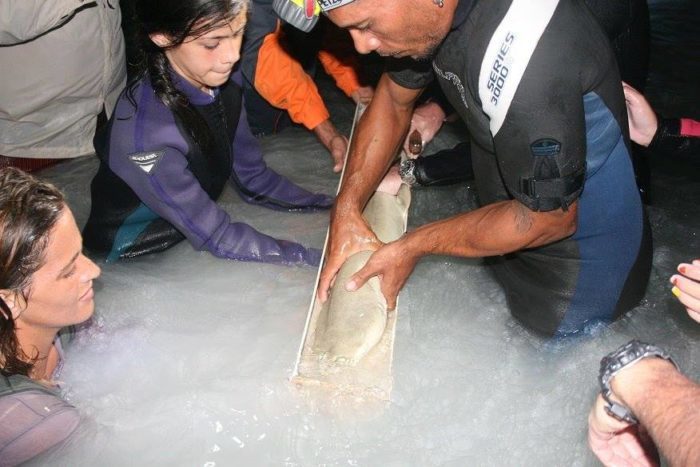
Conservationists young and old are coming together to save the sharks
The Program uses social media to help young people turn from poaching to influencing, which “Gives them a sense of purpose, of having become important by doing something useful.” Some consider being involved in the Program and the shark conservation movement as “the most important thing they did with their life.”
At the same time, social media promotes accountability for fishermen, who don’t want to be associated with poaching, and is gradually changing the reputation of sharks. Extremely smart fish, species like whale sharks often actively look for humans when they’re hurt and may approach a boat hoping for people to help them get off a hook or shake off a net. People now know not to panic and whom to call, and regularly send pictures to the Program to help them tag sharks.
Leonardo believes that saving our oceans may be one of the greatest challenges of our time, but is also doable if we join forces and keep each other accountable. “If I could ask one thing of people living in big cities is to please always check the story behind what you’re buying, and stop consuming single-use plastic. Trash always ends up in the ocean.”

Make Leonardo and the ocean happy and ditch single-use plastic
AtlasAction: The Program is always looking for volunteers and tourists who want to see healthy sharks in their heavenly natural environment in Los Roques. Follow the CIT on social media (IG | FB) and spread the word.
Project leader
Leonardo Sánchez, Director of the Centro para la Investigación de Tiburones
Support the Atlas
We want the Atlas of the Future media platform and our event to be available to everybody, everywhere for free – always. Fancy helping us spread stories of hope and optimism to create a better tomorrow? For those able, we'd be grateful for any donation.
- Please support the Atlas here
- Thank you!
